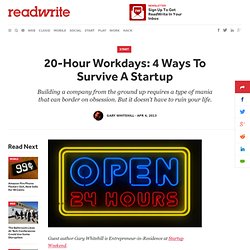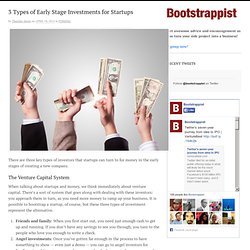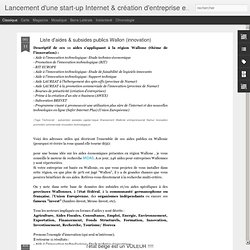

Understanding How Dilution Affects You at a Startup. This post originally appeared on TechCrunch. Dilution. Or as industry insiders call it, “taking a haircut.” Everybody knows that when you raise money at a startup your ownership percentage of the company goes down. The goal is to have the value of the startup go up by enough that you own a smaller percentage of a much larger business and therefore your total personal value goes up. The simplest way to think about this is: If you own 20% of a $2 million company your stake is worth $400,000. But understanding how you’re likely to get diluted over time is a more difficult concept. I’ve had to simplify a bit, but to make it easier to understand I’ve teamed up with Jess Bachman at Visual.ly. And Jess is awesome at his trade. So here is our crack at explaining the world of dilution to you. Listen, understanding the world of valuations and how equity gets split on a sale is a whole lot more complicated than the graphic depicts. 20-Hour Workdays: 4 Ways To Survive A Startup.
Guest author Gary Whitehill is Entrepreneur-in-Residence at Startup Weekend.

Entrepreneurs come in all shapes and sizes. But the most successful pioneers tend to share certain traits. Entrepreneurs are driven, innovative, persistent, resilient, and, as The New York Times’ David Segal suggests, just the right amount of crazy. The daunting venture of building a company from the ground up requires a type of mania, a type of desire that, on occasion, borders on obsession. An entrepreneur’s startup really is like his or her baby, demanding constant love and attention. Trace Cohen, President of Launch.it, had this to say about being a startup parent: “It's our job and privilege to do everything in our power to make sure our company grows up to be smart and strong. This reality presents a significant challenge to both budding and seasoned entrepreneurs. 1.
With all the complexity at the office, it helps to simplify your personal time. Startups: how to avoid death by enthusiasm. This is a guest post by Eran Laniado, the managing director of BMN!

This is heartbreaking: An entrepreneur puts mind, time, and energy into founding and running a new venture, and then recklessly sabotages the startup’s chances to succeed. The Enthusiasticus Founder syndrome (not to be confused with the entirely different Founderitis) occurs when novice founders, convinced that their garage gig is the next Google or Amazon, make critical mistakes due to the dangerous cocktail of inexperience and over-optimism. Unfortunately, it causes potentially great ventures to die prematurely and founders to forgo future entrepreneurial efforts. Here are some of the common signs and symptoms. Betting the house (especially yours) Undoubtedly, entrepreneurial success depends on commitment. As Paul Graham advises: ‘don’t get your hopes up.’ Therefore, a startup founder with no more than an idea – one who has neither a minimum viable product, nor traction and real customer insights – should take caution. Ras le bol ou Paraboles: Extraits du livre. 3 Types of Early Stage Investments for Startups.
There are three key types of investors that startups can turn to for money in the early stages of creating a new company.

The Venture Capital System When talking about startups and money, we think immediately about venture capital. There’s a sort of system that goes along with dealing with these investors: you approach them in turn, as you need more money to ramp up your business. It is possible to bootstrap a startup, of course, but these three types of investment represent the alternative.
Friends and family: When you first start out, you need just enough cash to get up and running. But this system is a tough one. The Incubator Route. Liste d'aides & subsides publics Wallon (innovation) Ça paraît stupide et facile, mais j'ai l'impression que l'on pourrait en tirer un parallélisme ; bien que je n'aie jamais fait de prison.

L'image que j'en ai à travers les films m'en donne l'impression. La prison, milieu extrême d'où on en ressort encore plus "dur", voire plus criminel que lorsque l'on y entre. Une aberration de notre temps ; personnellement, je trouve qu'une masse potentielle de travail qui ne dégage pas de valeur ajoutée, y compris pour la famille de la victime, n'est pas des plus pédagogique, voire juste.
Pourquoi "payer"/ s'endetter pour une unité nocive ? Unité qui sera encore plus nocive lorsque libre. 2 jours se sont passés. Le rapport entre ces 2 paragraphes, et le titre ? Ma stratégie ? Les 30 candidats retenus. 51 lessons learnt in year 1 as an entrepreneur.